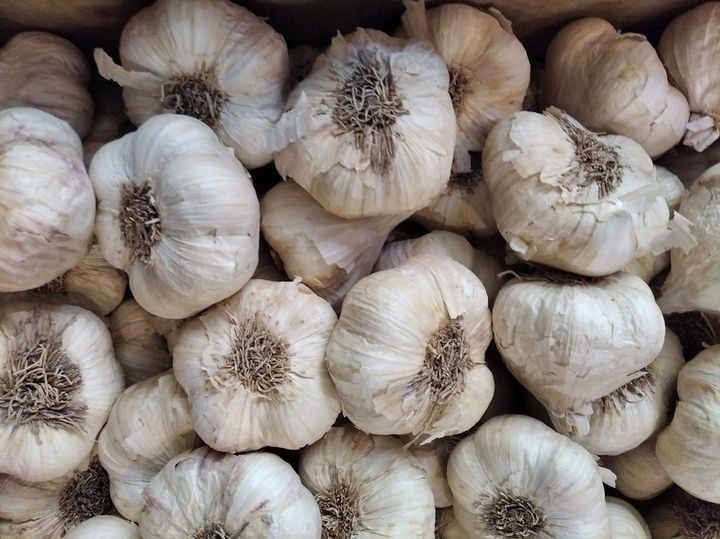Who should not eat garlic?
Garlic, known scientifically as Allium sativum, has been celebrated for centuries for its culinary and medicinal properties. It is a staple in kitchens worldwide and is often hailed as a natural remedy for various health conditions, including cardiovascular disease, infections, and even cancer. However, despite its numerous benefits, garlic is not suitable for everyone. Certain individuals should exercise caution or avoid garlic altogether due to potential health risks. This article explores who should not eat garlic and why.
1. People with garlic allergies
Garlic allergies, though rare, can cause severe reactions in some individuals. Symptoms of a garlic allergy may include:
- Skin rashes or hives
- Swelling of the lips, tongue, or throat
- Difficulty breathing
- Anaphylaxis (a life-threatening allergic reaction)
If you experience any of these symptoms after consuming garlic, seek medical attention immediately. Individuals with known garlic allergies should avoid garlic in all forms, including raw, cooked, or as a supplement.
2. Individuals with bleeding disorders or upcoming surgery
Garlic has natural blood-thinning properties due to its high content of allicin, a compound that can inhibit blood clotting. While this may benefit some people by reducing the risk of blood clots, it can be dangerous for others, particularly:
- People with bleeding disorders (e.g., hemophilia): Garlic can exacerbate bleeding tendencies.
- Individuals scheduled for surgery: Garlic should be avoided at least two weeks before and after surgery to reduce the risk of excessive bleeding.
If you are taking blood-thinning medications like warfarin or aspirin, consult your doctor before consuming large amounts of garlic.
3. Patients with gastrointestinal issues
Garlic is high in fructans, a type of carbohydrate that can be difficult to digest for some people. This can lead to gastrointestinal discomfort, particularly in individuals with:
- Irritable bowel syndrome (IBS): Garlic can trigger symptoms like bloating, gas, cramping, and diarrhea.
- Acid reflux or GERD (Gastroesophageal reflux disease): Garlic may relax the lower esophageal sphincter, allowing stomach acid to flow back into the esophagus, worsening heartburn.
- Stomach ulcers: The compounds in garlic can irritate the digestive lining, potentially aggravating ulcers.
If you have a sensitive stomach or a diagnosed gastrointestinal condition, it may be wise to limit or avoid garlic.
4. Patients with low blood pressure (hypotension)
Garlic is known to lower blood pressure, which can be beneficial for those with hypertension. However, for patients with already low blood pressure (hypotension), consuming garlic may cause blood pressure to drop too low, leading to symptoms such as:
- Dizziness
- Fainting
- Fatigue
- Nausea
If you have hypotension or are taking medications to manage blood pressure, monitor your garlic intake carefully.
5. Pregnant and breastfeeding women
While garlic is generally safe in moderate amounts during pregnancy and breastfeeding, excessive consumption may pose risks:
- During pregnancy: Large amounts of garlic may increase the risk of bleeding, which could be problematic during delivery.
- While breastfeeding: Garlic can alter the taste of breast milk, which some infants may find unpalatable, leading to feeding difficulties.
Pregnant and breastfeeding women should consult their healthcare provider before consuming garlic supplements or large quantities of garlic.
6. Patients taking certain medications
Garlic can interact with several medications, potentially reducing their effectiveness or causing adverse effects. These include:
- Blood-thinning medications: As mentioned earlier, garlic can enhance the effects of these drugs, increasing the risk of bleeding.
- HIV medications: Garlic may interfere with the effectiveness of some antiretroviral drugs.
- Birth control pills: Garlic might reduce the efficacy of hormonal contraceptives.
- Immunosuppressants: Garlic can stimulate the immune system, counteracting the effects of these medications.
If you are on any of these medications, consult your doctor before adding garlic to your diet or taking garlic supplements.
7. Patients with liver disease
Garlic contains compounds that can be toxic to the liver in large amounts. While moderate consumption is generally safe, individuals with liver disease or compromised liver function should avoid excessive garlic intake, as it may worsen their condition.
8. Patients with hypoglycemia or diabetes on medication
Garlic has been shown to lower blood sugar levels, which can be beneficial for people with diabetes. However, for patients with hypoglycemia (low blood sugar) or those taking diabetes medications, garlic may cause blood sugar levels to drop too low, leading to symptoms such as:
- Shakiness
- Sweating
- Confusion
- Fainting
If you have diabetes or hypoglycemia, monitor your blood sugar levels closely and consult your doctor before consuming large amounts of garlic.
9. Patients with thyroid disorders
Garlic contains goitrogens, compounds that can interfere with thyroid function by inhibiting iodine uptake. While this is generally not a concern for healthy individuals, those with thyroid disorders, such as hypothyroidism or Hashimoto’s thyroiditis, should be cautious with garlic consumption, especially in raw form.
10. People with sensitive skin
Garlic can cause skin irritation or burns when applied topically, particularly for individuals with sensitive skin. This is due to the presence of allicin, which can be harsh on the skin. If you have sensitive skin, avoid using garlic directly on your skin or in homemade remedies.
Conclusion
While garlic is a versatile and beneficial ingredient for many, it is not without its risks. Certain individuals, including those with allergies, bleeding disorders, gastrointestinal issues, low blood pressure, or specific medical conditions, should avoid or limit their garlic intake. Additionally, garlic can interact with medications and may not be suitable for pregnant or breastfeeding women in large amounts.

